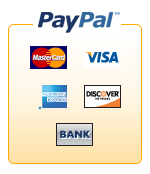How do I know this? Over the 35 years I’ve been playing guitar, I’ve probably studied with a dozen or more teachers. I studied at Berklee, at local schools, with Steely Dan alum Wayne Krantz, and with a bunch of guys around town. Karl is right up there with the best of them. He’ll not only show you how to play—he’ll show you how to play it with conviction—he goes a level deeper; so you *feel* the music, you don’t just make the sounds. He’s not only knowledgeable—he’s a walking encyclopedia of music (and the only guy I know who can talk knowledgeably about both Doc Watson and Venom!). And on top of all that, he’s a super nice and approachable guy, who makes the lessons fun.
Karl rocks! Check him out, you can’t go wrong.”
Charlie Kramer
"Karl knows more about music theory and songwriting, and explains it better, than anybody I know. I have watched him captivate rooms full of caffeine-deprived adults (at Saturday morning workshops), shy songwriters (comparing the story arcs of, say, John Cheever and Stephen Foster), and elementary-school guitar
students not much bigger than "the size of a carpet sample," (to quote one of his lyrics). He is a superb songwriter, guitarist and singer who, in another era, would have been the king of Tin Pan Alley or the Brill Building (and may yet be). For now, we're incredibly lucky that he's here in DC. He has the knowledge, the sense of humor, and most important, the generosity of spirit, that make a teacher great."
Mary Battiata
Singer-songwriter and bandleader (Little Pink)
"Karl is an amazing artistic teacher. I've learned a lot about starting out playing guitar and he makes me feel like I can play even more every day." (Zoe, age 9)
"What a great teacher to introduce a child to guitar. Karl is patient, encouraging, emphasizes fundamentals, and adds an element of fun. His teaching style has kept my daughter engaged and interested in continuing to practice and learn. He has great rapport and has really connected with my daughter to foster a commitment to music." (Zoe's mom)
"Karl brings the perspective of an experienced craftsman to his songwriting classes. Deconstructing the melodies, rhythms, and harmonic and chordal arrangements of classic popular songs from multiple genres (whether Berlin, Beatles or Bacharach) to illustrate his concepts, Karl provides his students with a variety of principles, “rules” (with, of course, exceptions) and strategies for song composition in a supportive environment. Students are encouraged to present works-in-progress for evaluation, feedback and polishing from Karl and fellow students. While some grounding in fundamental music theory is helpful, Karl will patiently explain the more sophisticated theoretical concepts. Students should also be prepared for thoughtful digressions exploring the historical, social and cultural forces that shaped the songs being studied. Whether you are relatively new to songwriting or even if you are a experienced composer, Karl’s songwriting class will sharpen your skills, give you new approaches to songcraft and enhance your own body of song."
Ed O'Connell, songwriting student.
"Karl Straub is a very talented music teacher. He has a broad knowledge base and draws from many methods, always adding his own innovations. He has a unique teaching approach to a wide range of topics, from sight reading to songwriting. Karl manages to make difficult concepts and techniques interesting and accessible to his students. He is unfailingly positive and encouraging and expertly tailors each session to his student's work rate and availability for learning. The result is a happy and growing music student who looks forward to each lesson."
Peggy Higgins-Rhodes, parent
"My lessons with Karl have been simply invaluable. I have learned so much about music, finger style guitar technique, and the craft of songwriting. As a result, I am well on my way to writing and playing songs that I am proud of.
Karl's teaching style is patient and non-judgmental, which enabled me to learn and to feel comfortable when I first began taking lessons. Additionally, he demonstrates a willingness to be flexible and a steadfast, committed professionalism, which I greatly appreciate."
Monique, student
"Our daughter, Sophia, has been a student of Mr. Straub's since age 6.
Although she was very young, Mr. Straub allowed for a short trial period
to see if she was truly interested and physically able to play. In the
past four years, Sophia's growth as a guitar player has been amazing.
The dedication and patience shown by Mr. Straub has paid off not only in
the quality of Sophia's guitar skills but in fostering an interest in song writing as well. She has written and performed music for her
school concerts. In addition to his teaching skills, his easy going
manner has fostered a bond that encourages Sophia to grow as a guitar
player at a pace that always keeps her interested and enthusiastic about
improving."
Mark A Gull, parent
(more to come-- i'm just in the first stages of posting these. PLEASE NOTE-- IF YOU ARE A CURRENT OR FORMER STUDENT OF MINE, AND WOULD LIKE TO ADD SOME COMMENTS HERE, PLEASE EMAIL ME AT KARLSTRAUB@HOTMAIL.COM. I'D LOVE TO PUT YOU ON HERE! THANKS.)
( MORE)



